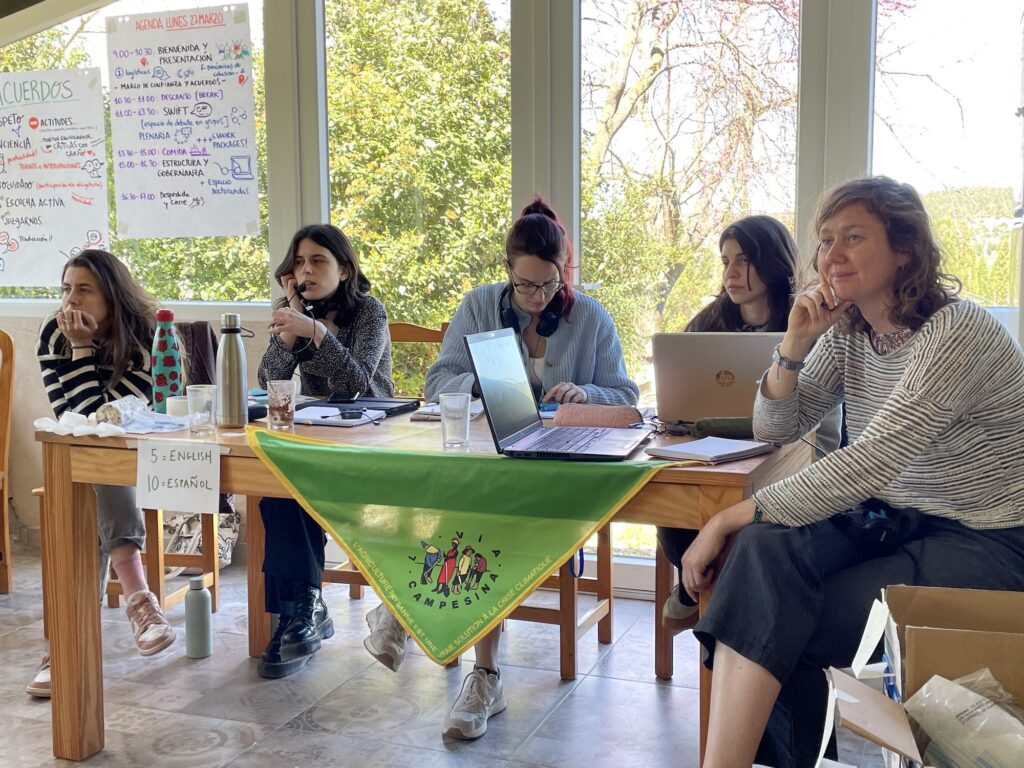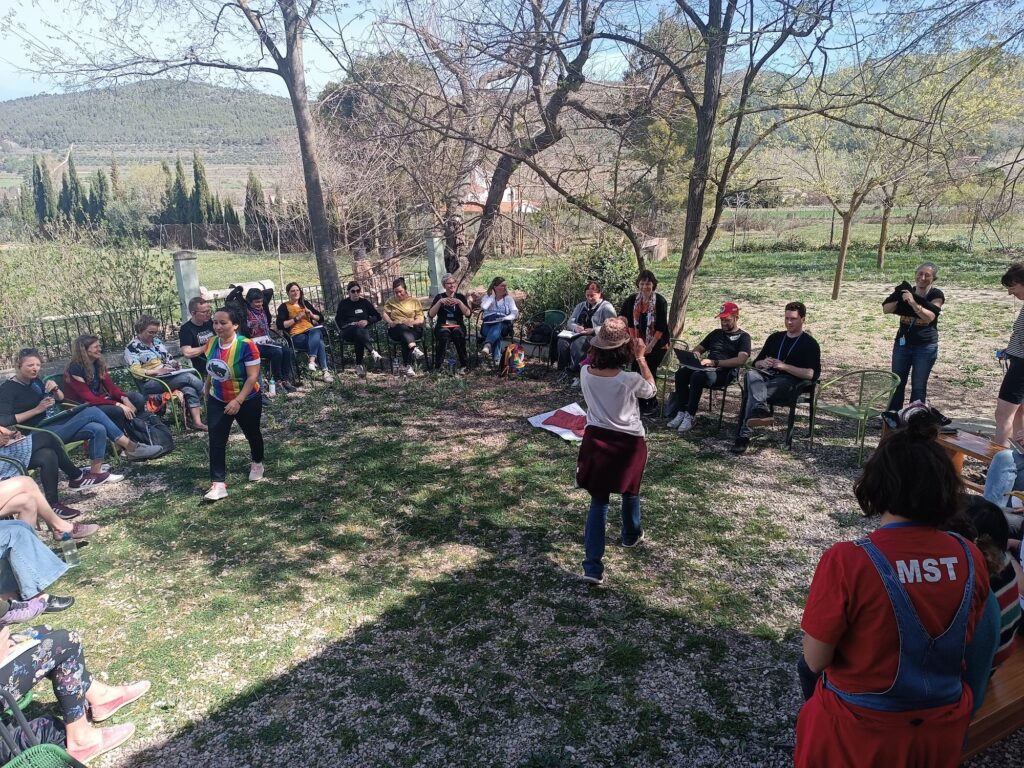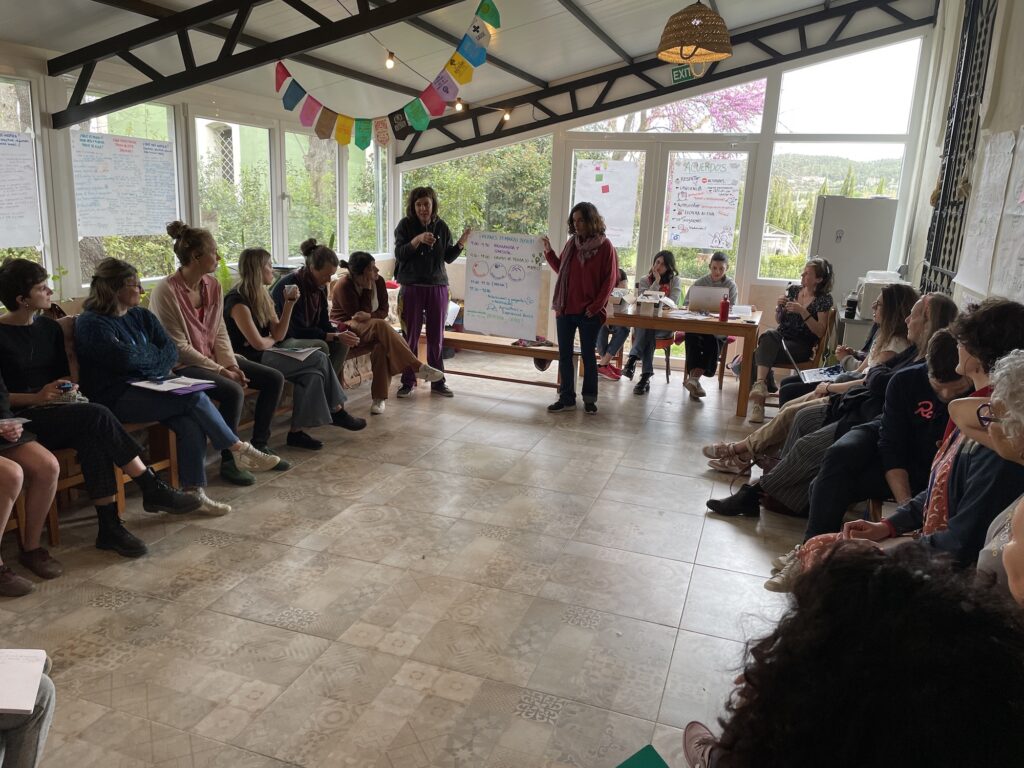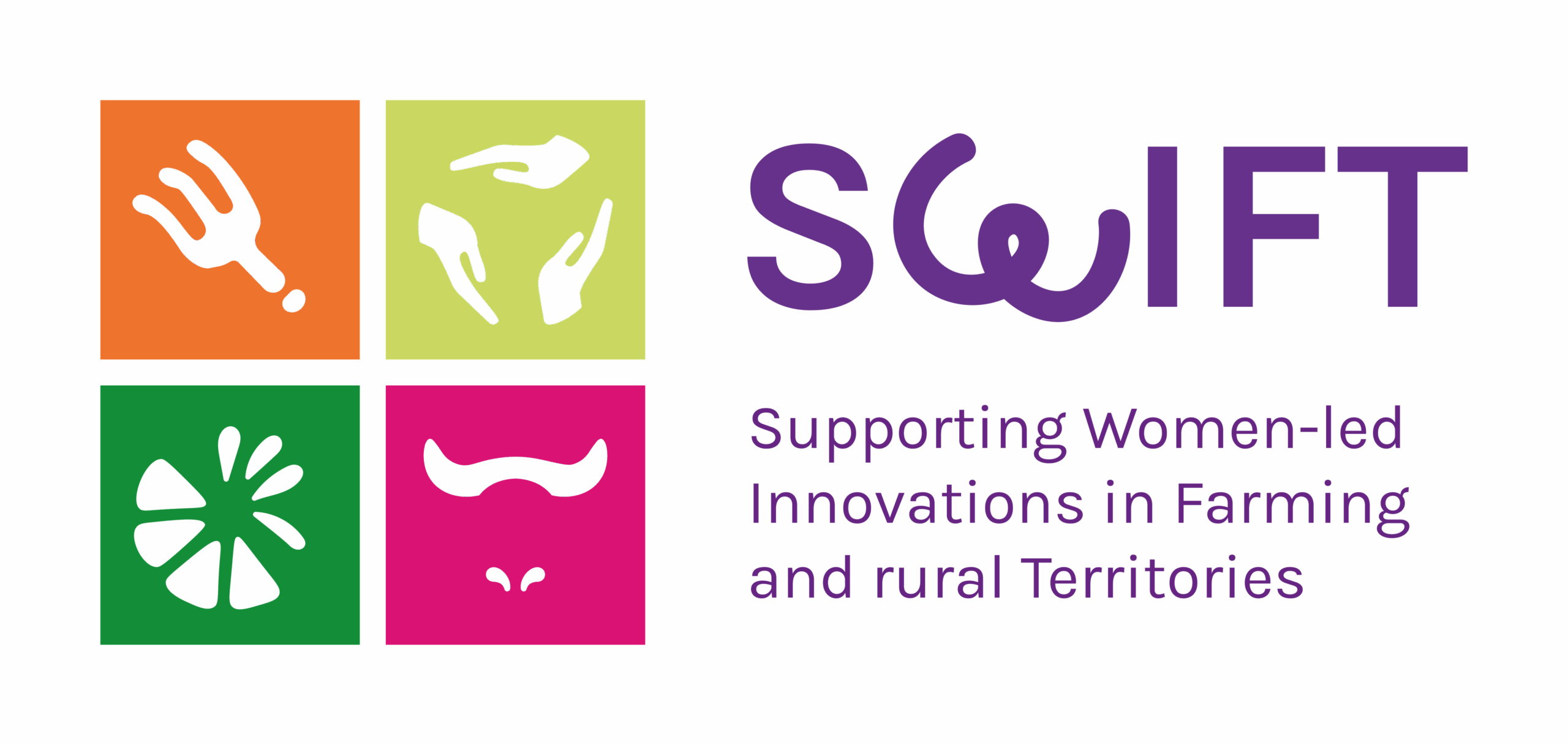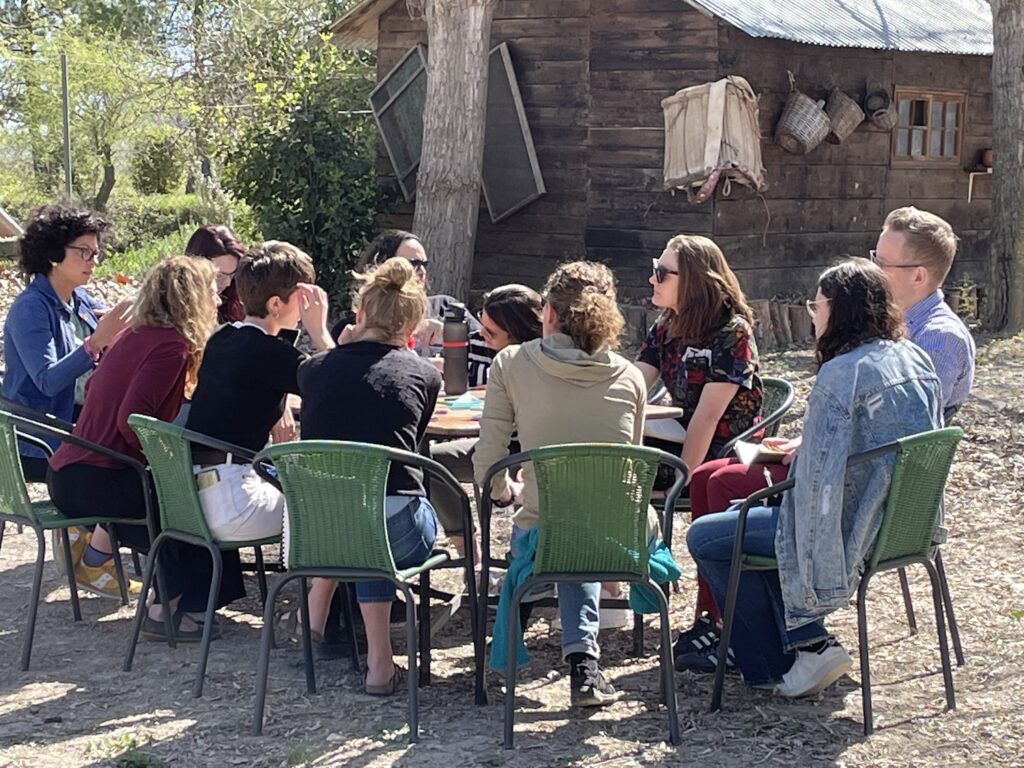
Understanding
Understanding digs deep into the root causes of inequality in agriculture by mapping the barriers and strengths that women-led and queer farming initiatives face. Grounded in feminist and human rights-based research, this work uncovers how power, identity, and resistance shape rural life. Through life histories, intergenerational dialogue, and participatory methods, we center the lived experiences of Women-Led Initiatives (WLIs) to build a shared, transformative vision for just and inclusive food systems.
Soil Sisters Podcast Series: Voices Rooted in Resilience
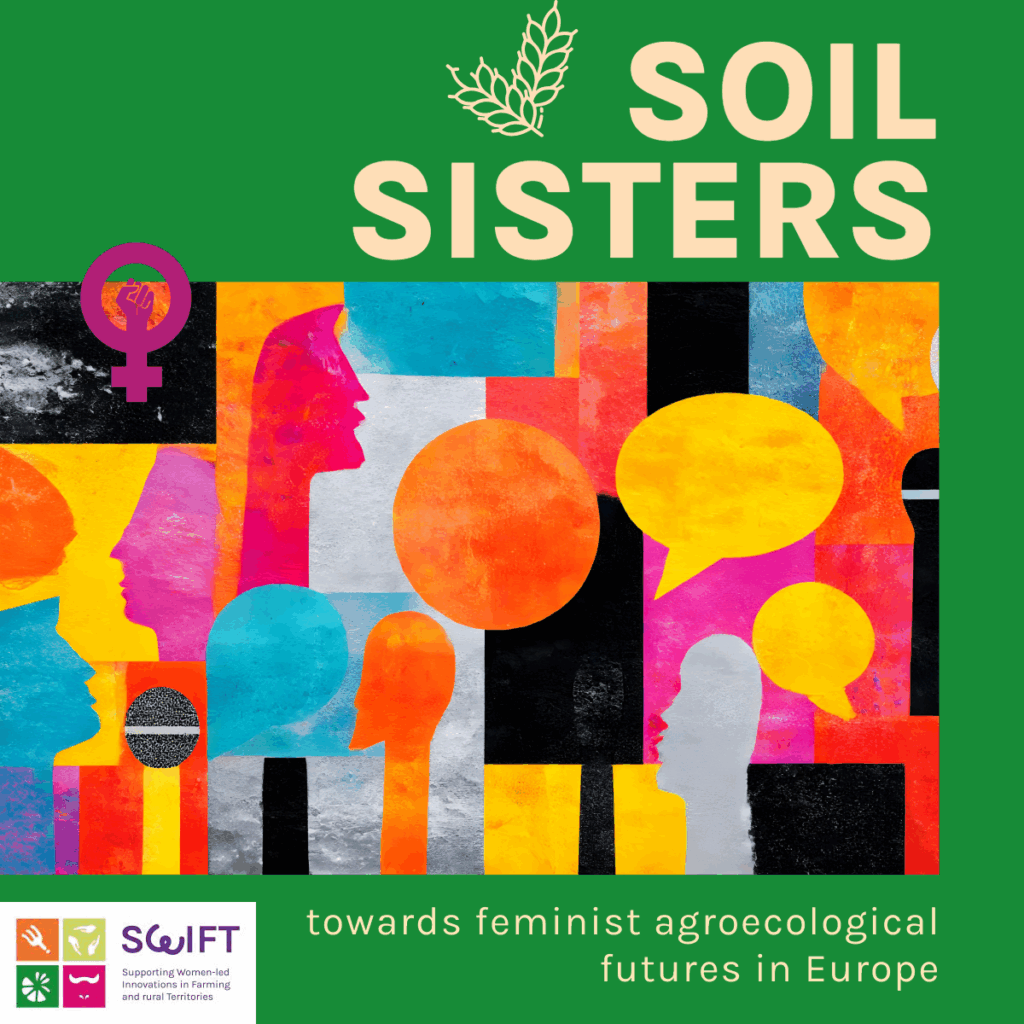
The Soil Sisters podcast series treats listening as feminist. Its episodes map barriers like land access, precarity, migration, care burdens, and low institutional trust; however, Soil Sisters’ guests lift up everyday strengths such as mutual aid, territorial markets, cultural memory, and collective organizing.
The series opens with episode one, a radio-style conversation that introduces SWIFT and feminist participatory action research. From there we travel to Bzvani, for episode two, where the “Laurel Women” braid myth, place, and an informal cooperative to build economic autonomy at home, even as some migrate for care work. This shows both the gendered costs and the solidarities of transnational life. In Poland, for episode three, farmers, activists, and researchers contend with thin institutional support and low social trust, yet still make agroecology tangible through shared practice, peer learning, and even a collectively composed anthem. Finally, in episode four, migrant women and peasant activists from Portugal, the Basque Country and Galicia, speak to precarity, dignity, and organizing. This episode explores where agroecology and food sovereignty become tools to rebalance power in fields, unions, and policy spaces.
Taken together, these episodes center Women-Led Innovations (the beating heart of the SWIFT Project), map barriers with the people most affected, and translate research into mobilizing stories. Understanding becomes belonging and belonging becomes strategy for just, inclusive food systems.
Soil Sisters, Episode 1: Towards Feminist Agroecological Futures
Languages: English and Spanish
The introduction to the Soil Sisters podcast series uses radio-style interviews with a number of participants in the SWIFT project to explain the goals of feminist participatory action research with a view to advancing agroecology in Europe. Listeners will hear from SWIFT Project Coordinator Marta G. Rivera, Margret Müller (ECVC), Maria Ferreira (Sindicato Labrego Galega), Francesco Panié (Crocevia International), Klarien Klingen and Els Hegger (Toekomstboeren) and Mari Gaprindashvili.
Soil Sisters, Episode 2: Story of the Laurel Women
Languages: Georgian and English
This episode tells the story of a group of women in a Georgian village who formed an unofficial cooperative during the post-Soviet period to harvest laurel leaves. Mari, the producer of the episode has a personal connection to the village of Bzvani where the episode takes place as she spent time in the area as a young girl and her cousin, Marina, is one of the ‘laurel women’ who appears and shares her life story in the episode.
Soil Sisters, Episode 3: How to Get Closer to Agroecology?
Languages: Polish
In Poland, agroecology remains a niche approach. This episode presents diverse perspectives on agroecology, its practical applications, and the challenges facing this movement in Poland. Our guests include women farmers, activists, and researchers who share their experiences and reflections on agroecological practices, the challenges of modern agriculture, and the role of women in building a sustainable farming sector.
Soil Sisters, Ep. 4: Mujeres y Migraciones
Languages: Spanish
This episode asks several questions about the human rights of women migrant workers in agriculture and the ways in which agroecology and food sovereignty can help to transform oppressive power relations in European agriculture and rural areas. The conversation includes the voices of Rima Rabeya from Bangladesh, former agricultural worker in Odemira’s agricultural enclave; Mery-Ann Garling from Chile, peasant in the Basque Country, and activist from EHNE-Bizkaia, and Conchi Mogo Alonso, activist from the Sindicato Labrego Galego-Comisións Labregas (SLG-CCLL). Each of these speakers shares their stories and struggles in different agricultural and rural contexts and discuss insights into agroecology and food sovereignty as pathways to justice and resistance.
Kicking Off with Collective Power: 2023 Agres Inception Workshop


The SWIFT project began in open dialogue—with farmers, activists, researchers, and organisers from 26 Women-Led Initiatives (WLIs) across 15 countries coming together for the Inception Workshop in March 2023. Held in Agres, Spain, this dynamic gathering set the tone for the entire project: participatory, feminist, and grounded in lived experience.
Over five days, participants co-created the values, concepts, and priorities that shape SWIFT’s work. Through collective mapping, storytelling, and strategy sessions, they identified shared challenges—like structural exclusion, lack of visibility, and extractivist food systems—as well as the transformative power of feminist agroecology, mutual care, and grassroots resistance.
The workshop laid the foundation for long-term collaboration and research. It sparked connections among WLIs for future peer exchanges, clarified how feminist and human rights-based approaches will guide the work, and helped select 10 initiatives for deeper study.
This wasn’t just a meeting. It was a moment of political alignment, setting the stage for collective transformation in Europe’s agri-food systems.
Explore the outcomes, voices, and energy that emerged—this is where SWIFT truly began.
